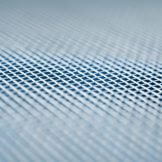Transvaginal Mesh
For decades, manufacturers – including Ethicon (a Johnson & Johnson company), Boston Scientific, Bard, American Medical Systems and Coloplast – have been selling mesh products for repair of pelvic organ prolapse (POP) and to treat stress urinary incontinence (SUI). Most of these products are made of a plastic called polypropylene. Unfortunately for the hundreds of thousands of women who have had these products implanted into them, polypropylene tends to shrink, degrade and fray in the human body. The mesh products also tend to migrate, erode, and pierce internal organs, and often cause permanent, intractable pain in and around the pelvic area, worsening incontinence and a lifetime of painful intercourse (dyspareunia).
Polypropylene mesh also causes neurological damage, including pudendal neuralgia and obturator neuralgia. Pudendal neuralgia is caused by compression or tension of the pudendal nerve. Obturator neuralgia is caused by compression or tension of the obturator nerve. Symptoms of pudendal or obturator neuralgia, caused by impairment of the nerves or their branches, include urinary frequency and urgency, incontinence, painful urination, pain during and after sexual intercourse, constipation and anal pain. Women suffering from pudendal or obturator neuralgia experience pain every day – while sitting, standing, wearing tight pants, etc… These can be life-changing, debilitating conditions that make the symptoms the mesh was intended to treat seem trivial in comparison.
Tens of thousands of women have sued the manufacturers of mesh. All of the older cases filed in federal court were consolidated in a federal multi-district litigation (MDL) formerly pending in the Southern District of West Virginia. Most filed cases have settled. Those MDL cases that were not settled were assigned to “waves” for depositions and case-specific fact and expert discovery. Once discovery was completed, “wave” cases were transferred back to their home jurisdictions for trial.
Women who were not part of the filings in the MDL are now discovering that they too have been injured by the polypropylene mesh and the location of its placement resulting sometimes in the debilitating conditions of pudendal and obturator neuralgia.
Ben Martin Law Group represents seriously mesh injured women with pudendal or obturator neuralgia and other life-altering injuries. These women have consistently been offered settlements that fail to account for the gravity of their pain. We understand what our clients have been through, and we are committed to obtaining compensation for them that is commensurate with their injuries, whether by settlement or trial. We are filing new cases in addition to wave cases and cases that are sometimes tolled and need to be refiled. Contact us and we can discuss your situation and evaluate your legal options.
Let’s talk about your pelvic mesh case.
The attorneys at Ben Martin Law Group are experienced in representing plaintiffs across a wide range of defective medical product lawsuits. We have filed numerous pelvic mesh cases for clients across the country. Contact us and we can discuss your situation and evaluate your legal options.
